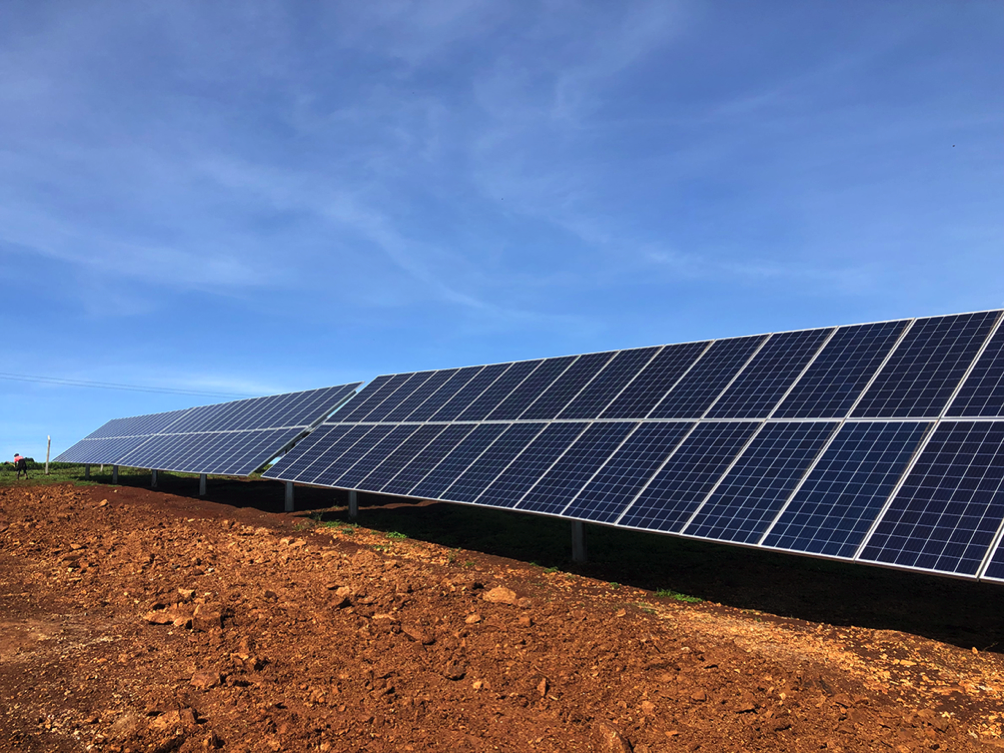It is not just new prime minister Boris Johnson who has been talking up the prospects of a post-Brexit U.K. as London-based developer Solarcentury yesterday issued impressive annual figures and announced an intent to return its focus back to its homeland.
The solar policy void in the U.K. prompted by Brexit-driven paralysis at Westminster saw the developer turn away from its domestic market two years ago. That international strategy appears to have paid handsome dividends as Solarcentury announced it was debt free at the end of the 2018-19 financial year and was sitting on a cash balance of £19.6 million ($24.4 million) at the end of March.
The impressive balance sheet came in large part because of the advent of unsubsidized solar in Spain, where Solarcentury made project sales during the reporting period from its 300 MW Talayuela and 200 MW Cabrera solar farms. With the business also developing the 44 MW Budel solar farm in the Netherlands, its international arm brought in £91.3 million of a total £100.2 million in revenue as the developer enjoyed net annual profits of £10.6 million.
Profits set to double
With chief executive Frans van den Heuvel predicting unsubsidized solar is about to arrive in Britain in a big way, Solarcentury rounded off its financial update by announcing “from 2019 onwards, the group is committed to significantly increasing its focus on U.K. solar development”.
The CEO called for governments around the world to halt subsidies for fossil fuel-powered energy and pointed out the U.K. government – which saw Johnson appointed as its new head yesterday and fracking-friendly Theresa Villiers brought in as environment secretary – could do much more to drive new solar generation capacity. Van den Heuvel cited estimates U.K. solar capacity could rise more than sixfold by 2030 to meet 20% of the nation’s electricity demand and added that much capacity would be more than double the opposition Labour party’s 35 GW, 2030 target.
With total revenue up 59% on the previous year’s £62.9 million, record EBITDA of £14.4 million (up from £1.5 million in 2018-19) and EBITDA margin rising from 2.4% to a thumping 14.4%, it is hard to argue with the board’s boast it had “successfully negotiated the company through fluctuating markets with a nimble and focused approach to long-term profitability”.
Popular content
Short-term returns may not prove too bad either, if Ven den Heuvel’s prediction “we are on track to double our profits in the current financial year” is borne out. The developer claims to have a 5 GW pipeline across the 10 international markets in which it operates, with five projects with a total generation capacity of 750 MW reaching ‘ready-to-build status’ by the end of March 2020. An intent to enter the Italian market was announced by the company in May and Solarcentury also trailed “major” project wins secured in a French procurement exercise in March.
Bumper charity payout
Solarcentury’s residential business generated £10.9 million of its 2018-19 revenue, up from £5.9 million in 2017-18, and was boosted by its tie-in with furniture giant Ikea as supplier of off-the-shelf home solar systems – although expansion of the scheme into Germany since January has not been without hiccups.
And with the developer claiming to have supplied 41,000 solar lamps in Malawi and Zambia in 2018-19 – to reach a cumulative 2 million products supplying clean light to more than 10 million people – it is not just shareholders who are benefiting.
Anyone who reads the remaining local and regional newspapers in the U.K. will be familiar with the amount of column inches devoted to corporate donations of a few hundred quid here or there. Solarcentury’s commitment to donate 5% of its net annual profits to its SolarAid charity ensured a bumper payout this year, with an awful lot more solar lamps on the way courtesy of a £528,527 windfall.
It’s just a pity the company announced its success on the same day Johnson was hogging the headlines.
This content is protected by copyright and may not be reused. If you want to cooperate with us and would like to reuse some of our content, please contact: editors@pv-magazine.com.



” Anointed ” is an anachronistic term for any democratic leader, but particularly so for an office-holder in a formal monarchy. Elizabeth Windsor has been crowned in Westminster Abbey in an OTT religious ceremony that requested divine blessing on her reign and person, and implied it was granted. Boris Johnson gets a cup of tea at Buckingham Palace, a trickier vetting by Larry the Number Ten resident cat (a tenured civil servant, not his property), and appointment subject to a confirmatory vote by the House of Commons. Or possibly not.
Thanks James, pv magazine reserves the right to be fully distanced from such treasonous sentiments, Your Majesty.